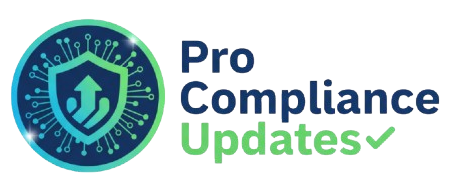Employee teams are one of the best ways to get things done in any business. When you take a group of independently talented people and create a team in which they can merge their talents, not only will a remarkable amount of energy and creativity be released, but their performance, loyalty, and engagement will be greatly improved.
WHY SHOULD YOU ATTEND?
Conflict resolution is a way for two or more parties to find a peaceful solution to a disagreement among them. The disagreement may be personal, financial, political, or emotional. When a dispute arises, often the best course of action is negotiation to resolve the disagreement.
Conflict resolution is a skill that benefits professionals across all types of career paths. Interpersonal conflict can occur in virtually any setting, from office jobs to in-field work.
Understanding how to deal with interpersonal conflict, reconcile emotions, and reach an understanding are valuable practices that boost well-being and productivity—and all of these techniques are learned through conflict resolution.
Conflict resolution is more than just a single technique for understanding the difference between mediation and arbitration. This complex skill set can lead to a rewarding career.
AREA COVERED
- Create a Team Culture
- Replace Negativity with Energy
- Gain Cooperation
- Develop Leaders amongst Groups and Employees.
LEARNING OBJECTIVES
- Leadership Principles - Seven Ways to Building Trust and Respect
- Creating a Positive Team Culture
- Listening and Reducing Miscommunication
- Leadership Principles - Seven Ways to Both Avoid and, If Necessary, Resolve Conflicts
- Use the Camaraderie Quest Activity as a Practical Application of Conflict Resolution Principles
- Leadership Principles - Seven Ways to Gain Cooperation and Build a Collaborative Environment
- Replacing Negativity with Energy
- Improving Communication and Anchoring Positive Behavior
- Leadership Principles - Seven Ways to Build Leadership
- IAB Formula = Incident, Action, Benefit
- Building Trust in the Workplace
- Building Support in the Workplace
- Recognition and Praise
WHO WILL BENEFIT?
The target audience is Employees as well as Managers.
Learning how to resolve conflict benefits employees in various ways. It equips them with enhanced communication skills, reducing misunderstandings and fostering better workplace relationships.
Managers are responsible for a wide range of duties, like scheduling, employee motivation, budget oversight, and performance assessment. Managers must also mediate employee conflict when necessary. Learn why conflict resolution is important and how to manage it to lead your team successfully.
Conflict resolution is a way for two or more parties to find a peaceful solution to a disagreement among them. The disagreement may be personal, financial, political, or emotional. When a dispute arises, often the best course of action is negotiation to resolve the disagreement.
Conflict resolution is a skill that benefits professionals across all types of career paths. Interpersonal conflict can occur in virtually any setting, from office jobs to in-field work.
Understanding how to deal with interpersonal conflict, reconcile emotions, and reach an understanding are valuable practices that boost well-being and productivity—and all of these techniques are learned through conflict resolution.
Conflict resolution is more than just a single technique for understanding the difference between mediation and arbitration. This complex skill set can lead to a rewarding career.
- Create a Team Culture
- Replace Negativity with Energy
- Gain Cooperation
- Develop Leaders amongst Groups and Employees.
- Leadership Principles - Seven Ways to Building Trust and Respect
- Creating a Positive Team Culture
- Listening and Reducing Miscommunication
- Leadership Principles - Seven Ways to Both Avoid and, If Necessary, Resolve Conflicts
- Use the Camaraderie Quest Activity as a Practical Application of Conflict Resolution Principles
- Leadership Principles - Seven Ways to Gain Cooperation and Build a Collaborative Environment
- Replacing Negativity with Energy
- Improving Communication and Anchoring Positive Behavior
- Leadership Principles - Seven Ways to Build Leadership
- IAB Formula = Incident, Action, Benefit
- Building Trust in the Workplace
- Building Support in the Workplace
- Recognition and Praise
The target audience is Employees as well as Managers.
Learning how to resolve conflict benefits employees in various ways. It equips them with enhanced communication skills, reducing misunderstandings and fostering better workplace relationships.
Managers are responsible for a wide range of duties, like scheduling, employee motivation, budget oversight, and performance assessment. Managers must also mediate employee conflict when necessary. Learn why conflict resolution is important and how to manage it to lead your team successfully.
Upcoming Webinars

Leadership: Strategic Planning and Decision Making

Writing Techniques for Auditors and Risk Management Profess…

Language is Code - Intro to AI - Generative AI - ChatGPT an…

Gossip-Free: Leadership Techniques to Quell Office Chatter

Do's and Don'ts of Giving Effective Feedback for Performanc…

Women’s Hostility to Women at Work: Myth or Reality

4-Hour Virtual Seminar on Audit Proofing your Payroll Opera…

Do's and Don'ts of Documenting Employee Behaviour, Performa…


Retention Starts Here: Stop Losing Your Critical Talent and…


Practice Safe Stress ™: Preventing Burnout While Building R…

Impact Assessments For Supplier Change Notices

Cleanroom, Microbiology and Sterility Assurance Practices f…




Thriving in a Hybrid Workplace: Keys to Leadership and Team…

2-Hour Virtual Seminar on DeepSeek vs ChatGPT AI for CPAs a…

Understanding EBITDA – Definition, Formula & Calculation

FDA Regulation of Artificial Intelligence/ Machine Learning

Construction Lending And Real Credit Administration: Evalua…

Sunshine Act Reporting - Clarification for Clinical Research

How the OBBB Act will Impact Immigration Enforcement! Preve…


2-Hour Virtual Seminar on Outlook - Timesaving Tips and Tri…


Leadership Upskilling: Don’t Just Manage; Lead with Influen…

H-1B Visa Updates and Employer Strategies for 2026

Aligning Your HR Strategy with Your Business Strategy: A Ro…

HIPAA 2025 – Major Changes, Latest Rulings & Guidance

AI for Excel Professionals: Enhancing Productivity with Cha…

Dealing With Difficult People: At Work & In Life

Understanding Accounting for non - Accounting professionals



Excel Power Skills: Master Functions, Formulas, and Macros …

